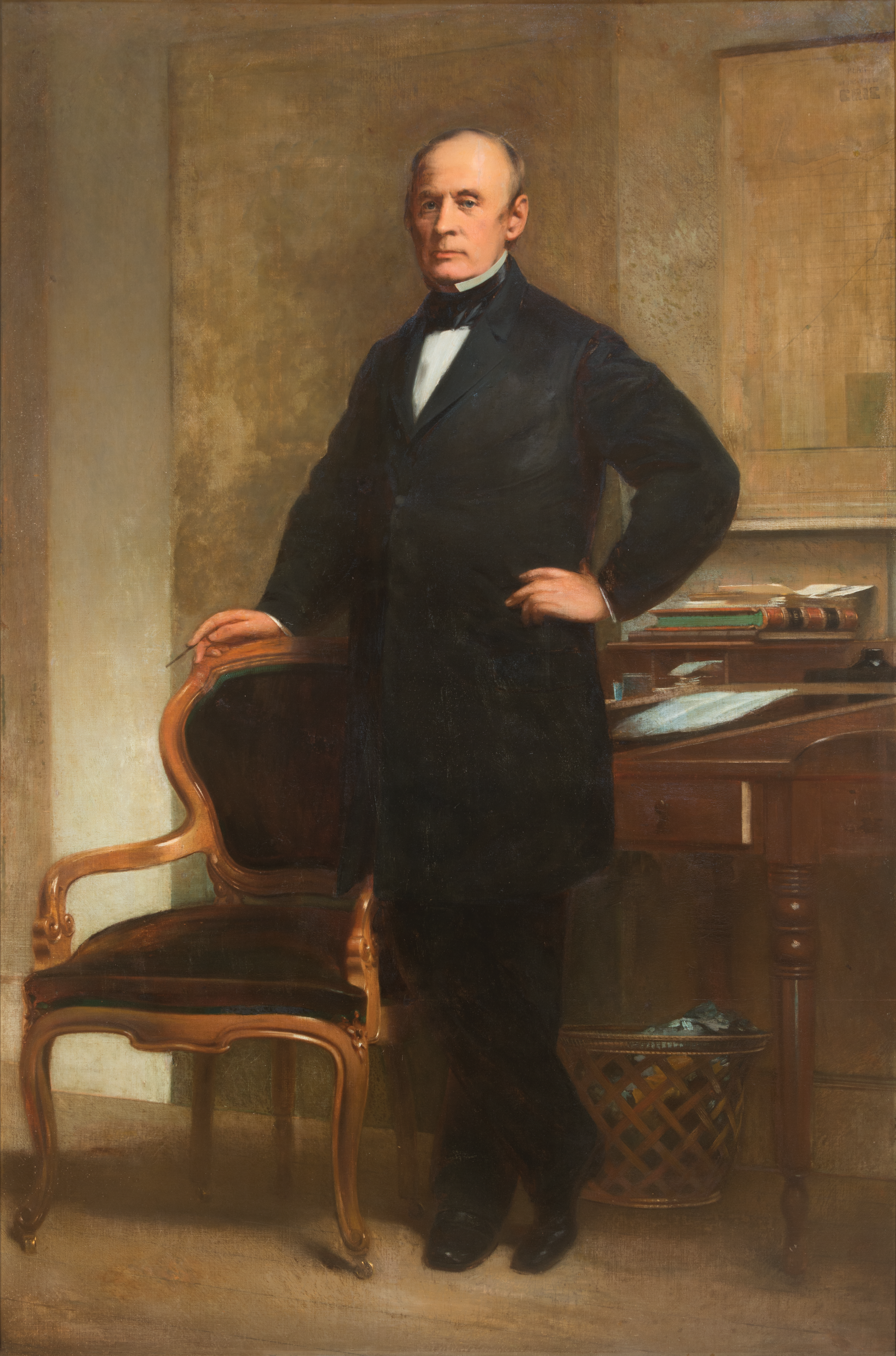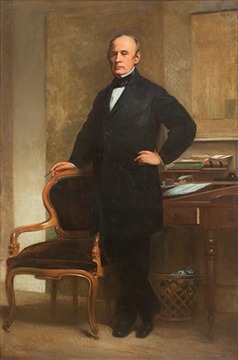
This 19th century oil painting — “Portrait of Francis Martin Drexel (1792–1863)” by Jean Joseph Benjamin Constant — is believed to have been painted after Francis Martin’s death. It currently hangs in Drexel’s Paul Peck Alumni Center, along with a painting of his son Anthony Joseph Drexel, also by the same artist. Photo courtesy of The Drexel Collection.
You probably know your alma mater was founded by Anthony J. Drexel, a wealthy Philadelphian banker. But the Drexel family has a rich history that predates Philadelphia — in Dornbirn, Austria, where Anthony’s father Francis Martin was born.
For the past decade, Director of Athletics and Carl R. Pacifico Professor of Neuropsychology Eric Zillmer has been cultivating research and cultural exchanges between the University and the city of Dornbirn to better connect with the family’s roots.
“There’s this beauty in the intellectual DNA of our University,” says Zillmer. “I think that for students and alumni, it increases the value of their education when they can learn where Drexel came from.”
Dornbirn has been the ancestral seat of the Drexel family since the 16th century. Located on the western tip of Austria near the borders of Germany, Switzerland and Liechtenstein, Dornbirn is a commercial hotspot and the country’s 10th largest city.
Francis Martin was born in 1792 and immigrated to America in 1817. During an itinerant lifestyle painting portraits of well-to-do political figures in Latin America, he began converting international currencies for his portraiture clients. That side business flourished into an incredibly successful banking firm fortune and, eventually, into the underwriting of J.P Morgan’s banking career.
To this day, Francis Martin is considered one of Dornbirn’s most famous citizens.
“That’s unbelievable, especially for a city like Dornbirn, and the whole identity of the city and its self-confidence has grown ever since,” says Dornbirn’s Mayor Andrea Kaufmann, who has been mayor since 2013 and has twice visited Philadelphia. “This is no trivial matter. Quite the reverse — the founder of one of the best private universities in America for sure has affected our town.”
Since 2009, Zillmer has visited Dornbirn with more than 100 University faculty, staff, students, alumni and friends (plus Drexel family members).
Drexel University now has relationships with the city’s government and its Vorarlberg University of Applied Sciences, which has enabled Drexel faculty to teach at the institution. In addition, Drexel student Isabella Sangaline ’20 completed a co-op researching the Drexel family in the Dornbirn City Archives. Several Dornbirners have also come to the University for research and study- abroad experiences.
In the past decade, Dornbirn has publicized its connection with the University and the Drexel family by publishing articles and dedicating a chapter in a book about Dornbirn immigrants to Francis Martin. In 2013, Francis Martin’s birthplace (a hotel for the past 40 years) received an historical marker designation. In 2009, a street was named in honor of Francis Martin’s granddaughter, Saint Katharine Drexel, who relinquished her life of affluence and leisure to become a nun; it was one of the first streets in the city to be named after a woman. The next year, Dornbirn officially opened a chapel in her honor.
“We are trying to do something here to translate Francis Martin Drexel’s legacy,” says Werner Matt, director of Stadarchiv, the Dornbirn City Archives.


